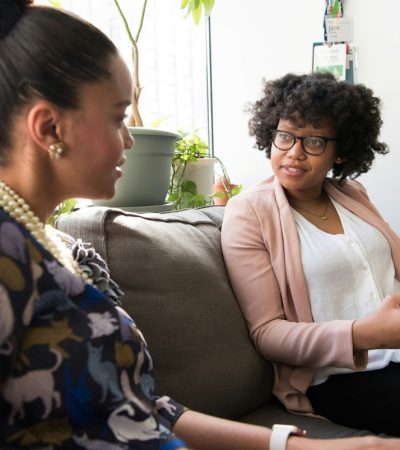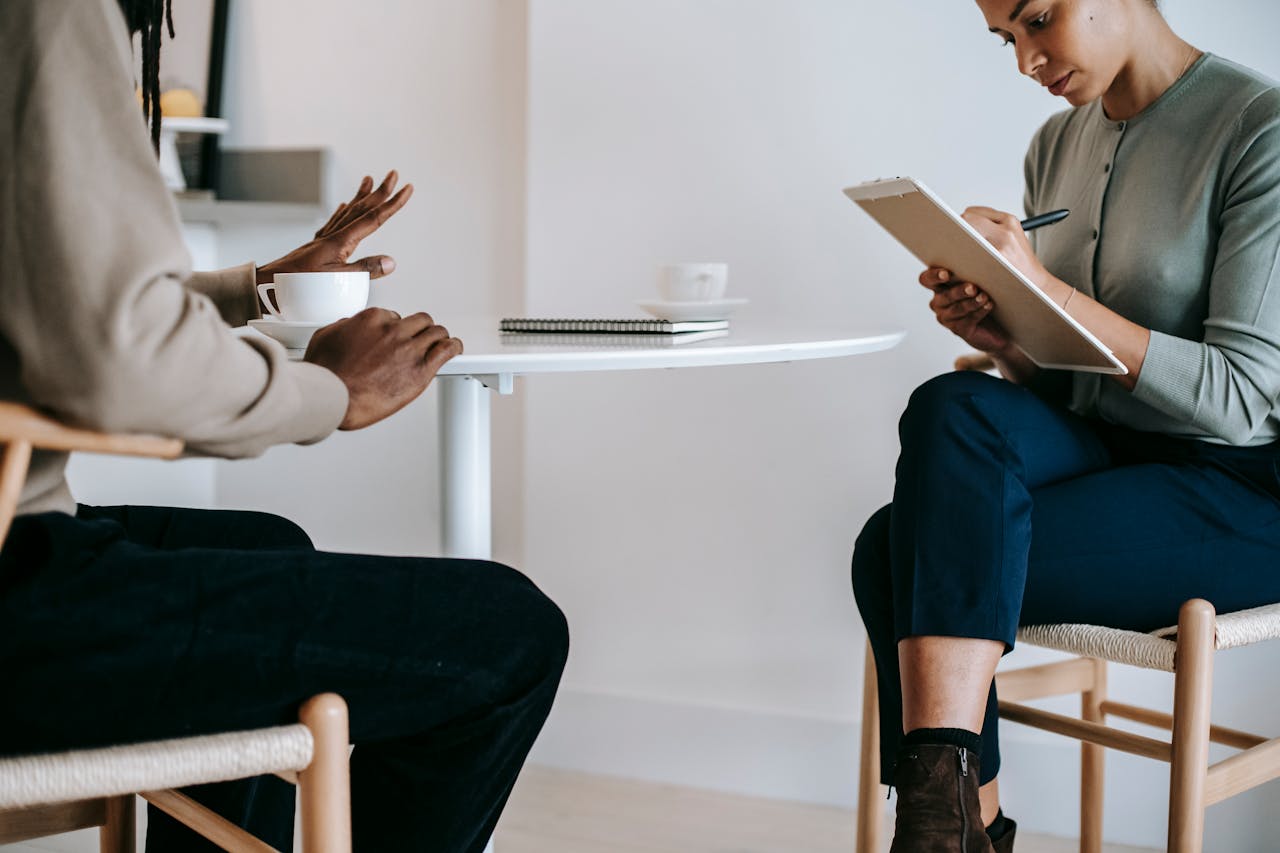
At the heart of meaningful therapy is connection – connection to self, to others, and to the systems and communities that shape our lives. Anti-oppressive therapy creates a space where power dynamics, systemic injustice, and lived experience are not only acknowledged but actively addressed. Rooted in empathy, mutual respect, and social awareness, this approach invites healing that honours your identity and resists harmful norms.
Working with a BIPOC therapist can be especially powerful and helpful if you are seeking support that reflects and respects your lived experiences through culturally appropriate therapy. Whether you’re navigating racialized trauma, identity exploration, or relationship challenges, anti-oppressive counselling offers a compassionate and affirming path to growth. Or, if your preference is to work with a BIPOC counsellor because it feels more comfortable and aligned, we honour that choice and are here to provide a safe, inclusive, and culturally attuned therapeutic space.
What is Anti-oppressive Therapy?
Anti-oppressive therapy is a framework that actively recognizes and challenges the impact of systemic inequalities such as racism, sexism, ableism, and other forms of oppression within the therapeutic relationship and broader society. This approach goes beyond traditional models by addressing the power dynamics that can influence a client’s well-being and access to care.
This kind of therapy pays close attention to power dynamics, both in society and in the therapy room. It asks: Who gets heard? Who feels safe? Who has access to care and support? And how can we do things differently so that you feel seen, respected, and supported in a way that honours your full identity?
In anti-oppressive counselling, the therapist works collaboratively with you to create a space where all aspects of your identity is acknowledged, respected, and empowered. At its core, anti-oppressive practice in counselling seeks to dismantle barriers to healing by centering social justice, cultural humility, and client autonomy. It’s particularly supportive for individuals whose mental health has been shaped by marginalization or systemic harm. Whether you’re navigating racism, generational trauma, chronic illness, queer identity, or religious harm, anti-oppressive therapy will acknowledge the intersections of your identities, privileges and barriers that impact your life and mental health.
Do I have to talk about race or culture in every session?
You don’t need to talk about race or culture in every session. Anti-oppressive therapists understand that these are parts of who you are—and that they can shape how you experience the world, your relationships, and your mental health—even if you don’t name them out loud every time.
For example, your relationship anxiety might be influenced by your race, your partner’s race, your family’s cultural background, or past experiences of marginalization. An anti-oppressive therapist will hold that complexity with you, without needing you to explain it over and over. You get to decide what feels relevant to explore. This is your space, and your voice leads the way. Your goals lead the way, and our role is to support you in whatever path your healing takes.
What is Racialized Trauma?
Racialized trauma refers to the emotional and psychological wounds caused by experiences of racism, discrimination, and systemic oppression. These experiences can be overt, such as racial slurs or hate crimes, or more subtle, like microaggressions, exclusion, or being stereotyped.
Over time, these repeated harms can deeply affect a person’s mental health, self-worth, and sense of safety in the world.
Many individuals also experience racial anxiety, a form of stress that arises from navigating environments where they may be judged, misunderstood, or treated unfairly because of their race.
Racialized trauma can manifest in symptoms similar to PTSD, including hypervigilance, avoidance, or emotional numbness, and often requires a culturally attuned therapeutic approach to begin the healing process.
Why Work with a BIPOC Therapist
A BIPOC Therapist is a therapist who identifies as Black, Indigenous, or a Person of Colour. Choosing to work with a BIPOC therapist can offer a deeper sense of understanding, safety, and connection, particularly for clients from racialized or marginalized communities. A BIPOC counsellor may bring shared cultural knowledge or lived experience that fosters trust and empathy from the very start.
In the context of multicultural therapy, this connection becomes even more meaningful, as therapy is shaped by an awareness of how race, culture, and identity influence mental health.
BIPOC therapists bring a high level of cultural competence in counselling, from their own lived experiences which allows them to navigate complex cultural dynamics with sensitivity and respect. This can lead to more affirming and effective support, especially for clients who may have previously felt unseen or misunderstood in traditional therapeutic settings.
Do I need to be BIPOC to work with a BIPOC therapist?
Not at all. BIPOC therapists work with clients of all backgrounds. Many non-BIPOC clients also seek out culturally competent therapy and value the insights and perspectives that a BIPOC therapist can bring to the therapeutic process.

The Value of Culturally Competent Therapy with a BIPOC Counsellor
For many clients, working with a BIPOC therapist offers a sense of comfort, connection, and understanding that can enhance the therapeutic process. Whether you’re exploring identity, navigating life transitions, or simply looking for support in your mental health journey, having a counsellor who shares or understands aspects of your cultural background can make a meaningful difference.
Approaches such as cultural therapy, cross-cultural therapy, and culturally competent therapy emphasize the importance of cultural considerations in counselling, ensuring that sessions are respectful, inclusive, and attuned to each client’s lived experience. This supportive environment allows clients to engage more openly and authentically, knowing their identity will be recognized, not explained or defended.
Questions You May Want to Ask Before Working with an Anti-Oppressive Specialized Therapist
Before starting therapy, it’s completely valid and encouraged to ask questions that help you feel confident and supported in your choosing who you work with. If you’re seeking an anti-oppressive approach, the questions below can guide a conversation to ensure the therapist’s values and experience align with your needs.
What is your experience working with clients from my cultural or identity background?
How do you address power dynamics within the therapist-client relationship?
Can you share how you stay informed about current social justice issues that may affect your clients?
How comfortable are you discussing topics around discrimination, systemic oppression, privilege, injustice and inequality?
Work with a BIPOC Therapist in Vancouver
Whether you’re looking for support with identity, relationships, or emotional wellness, we’re here to walk alongside you. Reach out today to connect with a BIPOC therapist and begin your journey in a space that honours your story and cultural experience.
Haven Wellness currently has two BIPOC therapists – Malar Chandran and Sandy Zhang. Both therapists are Asian and in addition to English, are also comfortable talking to you in Mandarin, Tamil and Malay.

